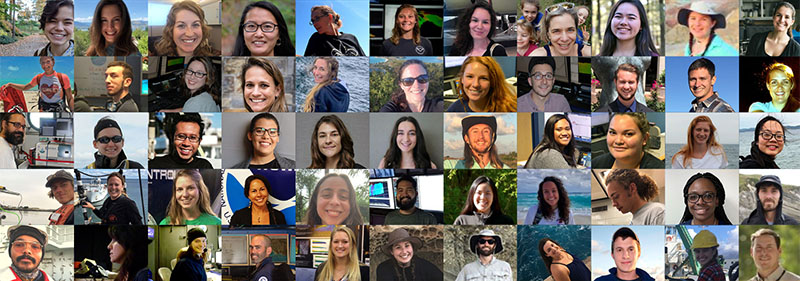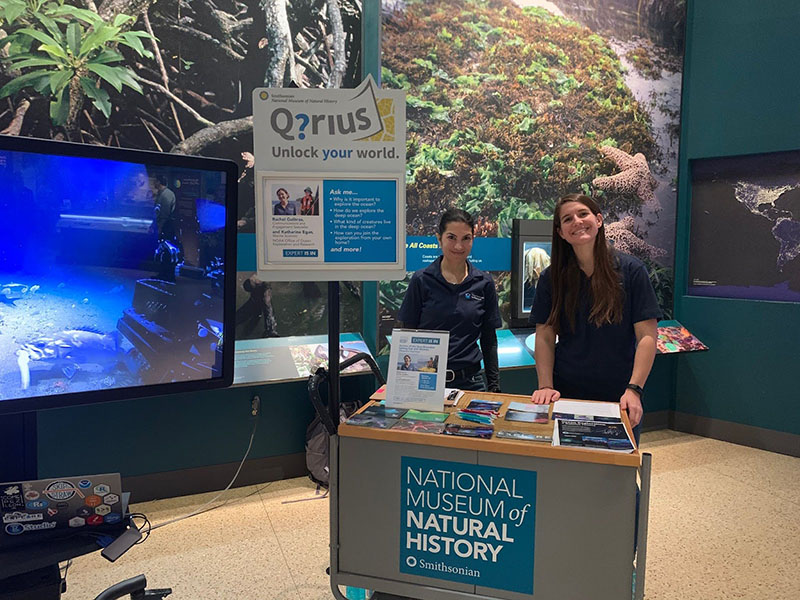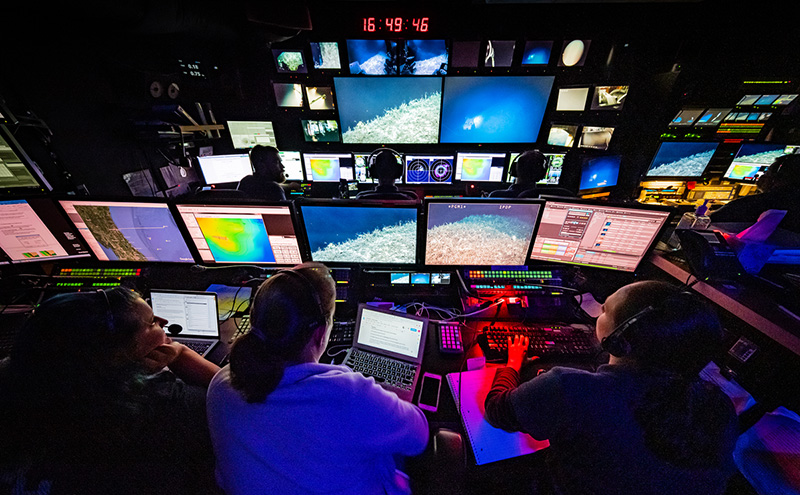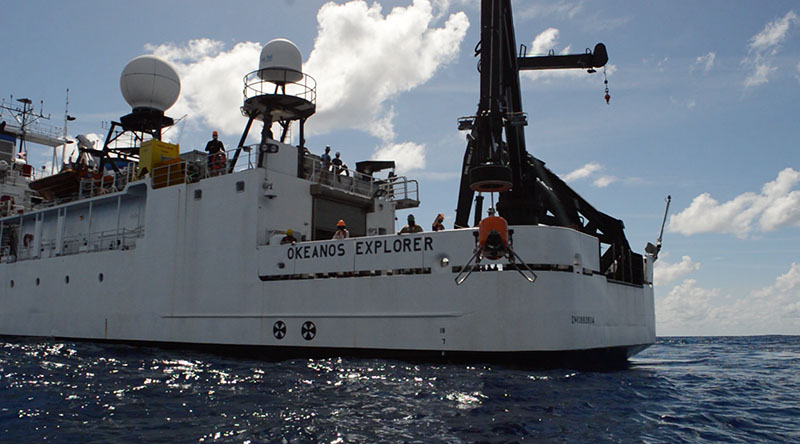Free, accessible, and publicly available data, along with telepresence-enabled exploration, all help bring deep-sea science and research within reach of the broadest number of students, researchers, scientists, policymakers, and decision makers possible. By providing individuals and institutions with access to data and opportunities to actively participate in ocean exploration, we broaden the ocean exploration community, which in turn benefits from a diverse and interdisciplinary array of expertise. Dives are livestreamed to our science channel, allowing us to engage a larger, more diverse, and more geographically dispersed group of scientists than would otherwise be able to participate. This model facilitates partnerships between groups that otherwise might not have the opportunity to collaborate due to cost, logistics, or other factors. Additionally, all NOAA Ocean Exploration data, including videos and images, are in the public domain, free for anyone to use, share, and repurpose. Publications are Section 508 compliant to ensure that they are accessible to, and usable by, individuals with disabilities, and renewed efforts are underway to translate educational materials into Spanish.
 Commitment to Diversity, Equity, Inclusion, and Accessibility
Commitment to Diversity, Equity, Inclusion, and Accessibility


